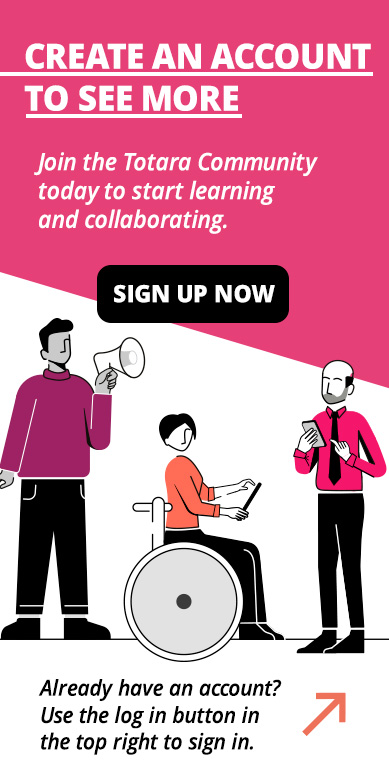Key terms
Pagina: (Precedente) 1 ... 3 4 5 6 7 8 9 (Successivo)
TUTTI
R |
|---|
RestoreThe process of replacing or adding a course within Totara Learn, with a previously backed up course. |
Restrict accessAlso known as conditional access. Restricts access to specific activities in a course based on the user meeting (or failing to meet) predefined criteria. |
RoleThe access rights and associated capabilities an individual has within the system. Roles can exist in different contexts. |
Role contextThe
area of the system where a role may be assigned or overridden. |
RPL (recognition of prior learning)A
system to accredit a learner’s previous training and experience towards the
completion of activities, resources, and/or courses. |
S |
|---|
ScaleA
customisable rating-system which allows users to be rated against the
achievement or partial achievement of a competency. |
Subject instance (performance activities)A copy of a performance activity generated for the subject of the activity (the user being evaluated). |
Subject (performance activities)In Totara Perform, the subject is the user the performance activity is about (the user whose performance is being evaluated). They may or may not participate in the activity. |
SurveyIn Totara Engage, a survey is a quick, one-question poll with up to ten answer options, created by any user in Totara Engage. In Totara Learn, the survey activity allows you to present a number of pre-set learning surveys to learners in a course. |
T |
|---|
Talent Experience PlatformTotara’s Talent Experience Platform combines a learning
management system (LMS), a user-centric learning experience platform (LXP) and
a comprehensive performance management system under a single and highly
adaptable architecture. |
Pagina: (Precedente) 1 ... 3 4 5 6 7 8 9 (Successivo)
TUTTI
